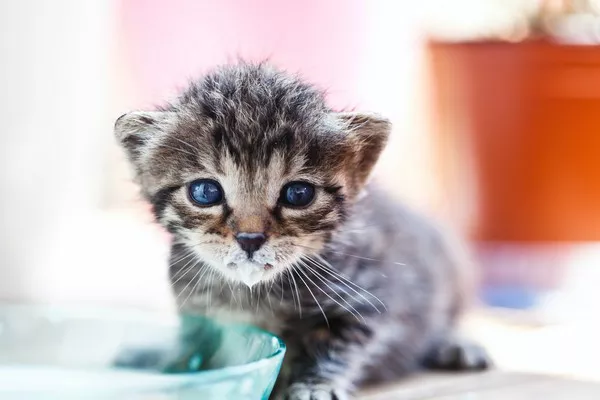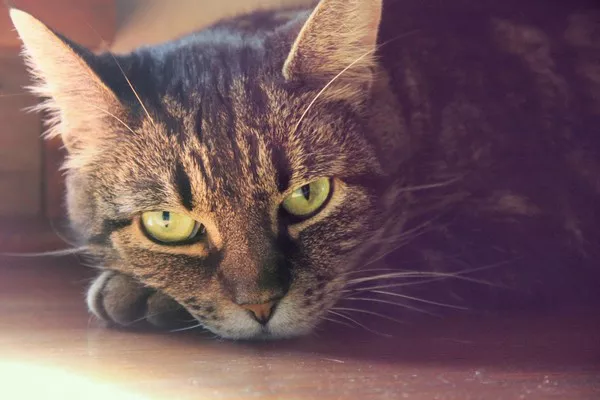Catnip, also known as Nepeta cataria, is a perennial herb that is native to Europe and Asia. It is a member of the mint family and is known for its ability to induce a euphoric response in cats. However, catnip is not just a recreational herb for cats – it also has several health benefits. In this article, we will explore the health benefits of catnip for cats, as well as provide some tips for using catnip safely.
What is Catnip?
Catnip is a plant that contains a compound called nepetalactone.
This compound is found in the leaves and stems of the plant and is responsible for the unique reaction that cats have to the herb.
When cats come into contact with catnip, they may rub against it, roll on it, or eat it.
This can lead to a range of behaviors, including increased playfulness, relaxation, and even aggression.
The Health Benefits of Catnip for Cats
While catnip is known for its recreational effects on cats, it also has several health benefits.
Here are some of the ways that catnip can benefit your cat:
Reducing Stress and Anxiety
Stress and anxiety can have a negative impact on a cat’s health and wellbeing. Cats that are stressed or anxious may exhibit behaviors such as hiding, excessive grooming, or aggression. They may also experience physical symptoms such as vomiting, diarrhea, or loss of appetite.
Catnip can help to reduce stress and anxiety in cats by promoting the release of feel-good chemicals in the brain, such as serotonin and dopamine. This can help to calm your cat and promote a sense of relaxation.
Catnip can be particularly useful for cats that are prone to anxiety or that have experienced a traumatic event, such as a move or a visit to the vet. By providing catnip, you can help to soothe your cat and reduce their stress levels.
It is important to note that while catnip can be effective in reducing stress and anxiety, it should not be used as a substitute for proper veterinary care. If your cat is exhibiting signs of stress or anxiety, it is important to consult with your veterinarian to determine the underlying cause and develop an appropriate treatment plan.
Promoting Relaxation and Sleep
Promoting relaxation and sleep is another benefit of catnip for cats. In addition to reducing stress and anxiety, catnip can also help to promote a sense of calm and relaxation, which can be helpful for cats that have trouble sleeping or that are prone to hyperactivity.
Catnip works by stimulating the receptors in a cat’s brain that are responsible for regulating sleep and wakefulness. This can help to promote a healthy sleep pattern and improve the quality of your cat’s sleep.
For cats that have trouble sleeping, providing catnip before bedtime can help to promote relaxation and make it easier for them to fall asleep. This can be particularly useful for older cats or cats that have medical conditions that make it difficult for them to sleep.
It is important to note that while catnip can be effective in promoting relaxation and sleep, it should not be used as a substitute for proper veterinary care. If your cat is experiencing sleep disturbances, it is important to consult with your veterinarian to determine the underlying cause and develop an appropriate treatment plan.
Stimulating Appetite
Yes, catnip can also stimulate a cat’s appetite. This can be helpful for cats that are picky eaters or that have a decreased appetite due to illness or medication.
Catnip contains a chemical compound called nepetalactone, which can stimulate a cat’s appetite. When a cat smells or ingests catnip, it can trigger a response in their brain that makes them feel hungry. This can be particularly useful for cats that are recovering from an illness or surgery and need to regain their strength.
It is important to note that while catnip can be effective in stimulating a cat’s appetite, it should not be used as a substitute for proper veterinary care. If your cat is experiencing a decreased appetite, it is important to consult with your veterinarian to determine the underlying cause and develop an appropriate treatment plan.
Additionally, it is important to use catnip in moderation, as excessive use can lead to digestive upset or other health issues. It is recommended to limit your cat’s exposure to catnip to no more than once or twice a week, and to monitor their behavior and health closely.
Reducing Pain and Inflammation
Yes, catnip has been found to have anti-inflammatory properties that can help to reduce pain and inflammation in cats. This can be particularly useful for cats that suffer from arthritis or other inflammatory conditions.
The anti-inflammatory effects of catnip are due to the presence of a compound called nepetalactone. This compound has been found to inhibit the production of inflammatory molecules in the body, which can help to reduce pain and inflammation.
In addition to reducing pain and inflammation, catnip can also help to improve a cat’s overall mobility and joint function. This can be particularly beneficial for older cats that may be experiencing joint stiffness or pain.
It is important to note that while catnip can be effective in reducing pain and inflammation, it should not be used as a substitute for proper veterinary care. If your cat is experiencing pain or inflammation, it is important to consult with your veterinarian to determine the underlying cause and develop an appropriate treatment plan.
Using Catnip Safely
While catnip is generally safe for cats, it is important to use it in moderation and to monitor your cat’s reaction to it. Here are some tips for using catnip safely:
Use Fresh Catnip
Yes, fresh catnip is generally more potent than dried catnip and can be more effective in inducing a response in cats. This is because fresh catnip contains higher levels of the active compound nepetalactone, which is responsible for the plant’s effects on cats.
However, it is important to use fresh catnip in moderation, as too much can cause your cat to become overstimulated or even sick. In general, a small pinch of fresh catnip leaves or flowers is sufficient to elicit a response in most cats.
It is also important to note that not all cats respond to catnip in the same way. While some cats may become very active and playful when exposed to catnip, others may not show any response at all. This is because the sensitivity to catnip is genetically determined and varies from cat to cat.
If you are unsure whether your cat is sensitive to catnip, it is best to start with a small amount and observe their behavior closely. If your cat shows signs of overstimulation or discomfort, such as excessive meowing, hyperactivity, or vomiting, it is important to remove the catnip and monitor your cat’s behavior and health closely.
Monitor Your Cat’s Reaction
Yes, monitoring your cat’s reaction to catnip is important to ensure their safety and well-being. While most cats enjoy the effects of catnip and may become more playful or relaxed, some cats may have negative reactions to it.
If you notice any negative reactions in your cat, such as vomiting, diarrhea, or excessive meowing, it is important to stop using catnip immediately and consult your veterinarian. These symptoms may indicate that your cat is sensitive to catnip or that they have consumed too much.
It is also important to use catnip in moderation, as excessive use can lead to overstimulation or even aggression in some cats. In general, it is recommended to limit your cat’s exposure to catnip to no more than once or twice a week, and to monitor their behavior and health closely.
Additionally, it is important to keep catnip out of reach of children and other pets, as it can be toxic if ingested in large quantities.
Use Catnip as a Treat
It is important to provide your cat with a balanced diet that meets their nutritional needs, as well as plenty of opportunities for exercise and mental stimulation. This can include playing with toys, providing scratching posts and climbing structures, and engaging in interactive play with your cat.
Regular playtime and exercise can help to keep your cat healthy and happy, and can also prevent behavioral problems such as aggression or destructive behavior. It can also help to strengthen the bond between you and your cat.
In addition to playtime and exercise, it is also important to provide your cat with mental stimulation. This can include puzzle toys, treat-dispensing toys, and other interactive toys that encourage your cat to use their natural hunting and problem-solving instincts.
By providing your cat with a balanced diet, plenty of exercise and playtime, and opportunities for mental stimulation, you can help to ensure their overall health and well-being. Catnip can be a fun and enjoyable addition to your cat’s routine, but it should be used in moderation and as a treat, rather than a substitute for other forms of enrichment.
Conclusion
Catnip is not just a recreational herb for cats – it also has several health benefits. By reducing stress and anxiety, promoting relaxation and sleep, stimulating appetite, and reducing pain and inflammation, catnip can help to improve your cat’s overall health and wellbeing. However, it is important to use catnip in moderation and to monitor your cat’s reaction to it. By following these tips, you can safely provide your cat with the many benefits of catnip.
Related Topics



























